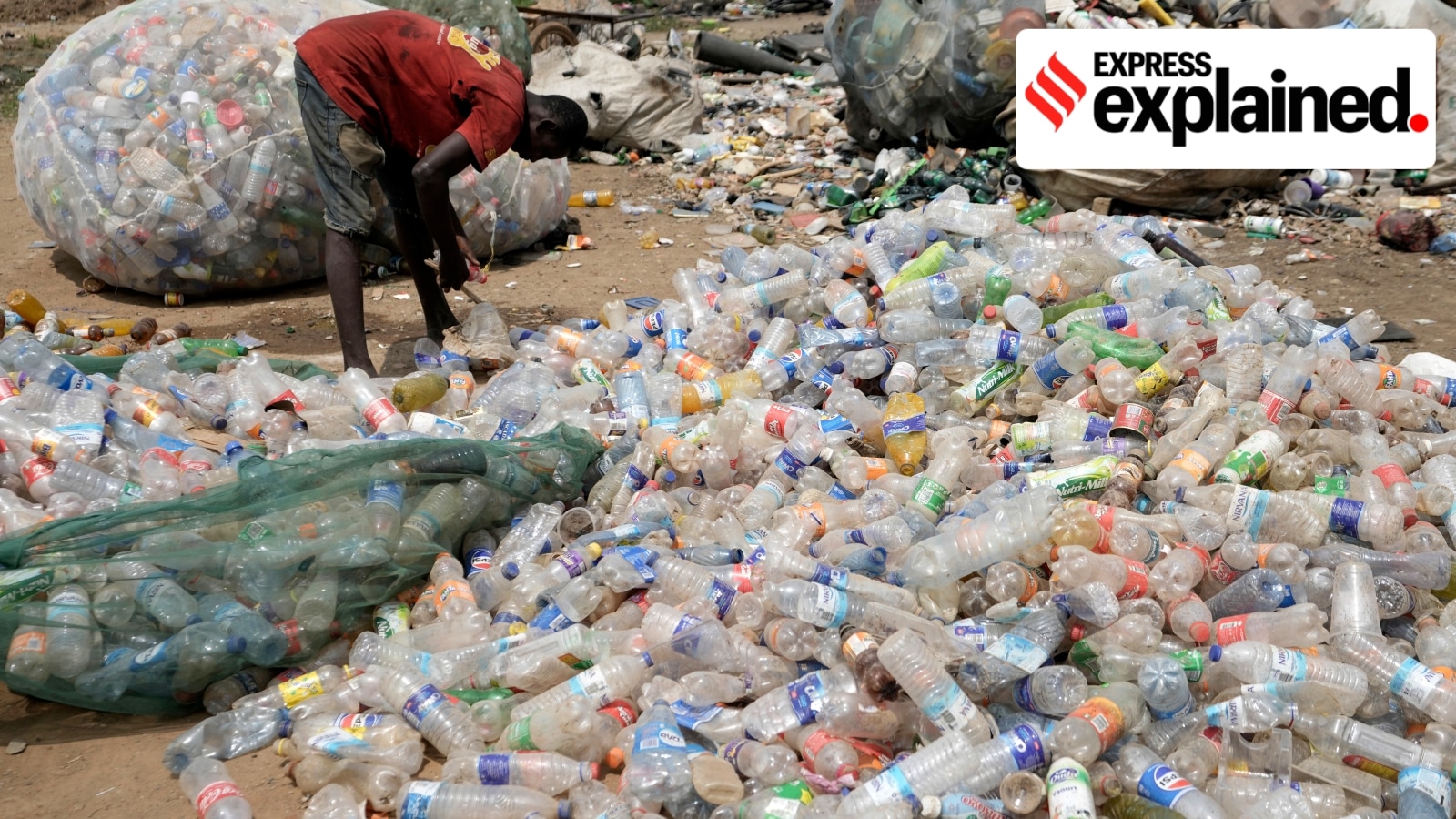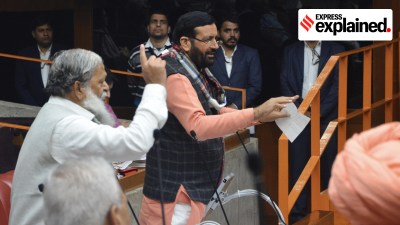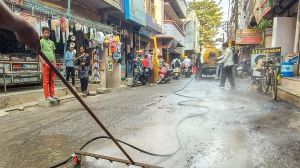After 10 days of negotiations in Geneva which saw several rounds of closed-door meetings and five plenary meetings, crucial talks to agree on the first-ever treaty to end plastic pollution ended in failure. This was the second-time in a span of eight months that talks to hammer out a global plastics treaty have failed.
Talks failed on the last day after it became clear that fundamental divisions over the scope, ambition, and core set of legally binding measures against plastic pollution remained unresolved. The Intergovernmental Negotiating Committee (INC) of the United Nations Environment Programme was leading the second part of the fifth session to develop a legally binding treaty.

The treaty was being negotiated after a historic resolution was adopted in 2022 to develop a treaty on plastic pollution, including the marine environment.
What did the talks fail in Geneva?
Unresolved differences over fundamental articles of the treaty’s draft, such as its scope, the definitions of plastics, provisions on addressing life-cycle of plastics including production cuts, and containing chemicals of concern, threw the negotiations off-balance once again.
These negotiations work under the principle of “nothing is agreed until everything is agreed”, and hence consensus is vital, even as many countries pushed for voting to break deadlocks.
To add to this, countries also differed on the language in the treaty’s draft on the means of implementation, which refers to the mechanism put in place to help countries implement stricter measures against plastic pollution. This was a sticking point raised by India, Cuba and Malaysia, among others.
The negotiations were saddled by entrenched positions taken by two blocs of country groupings. On one side were nearly 100 countries under the “high-ambition coalition” group, led by Norway, Panama, European Union, UK among others. These countries were aggressive in their stance on legally binding measures to cut plastic production, curb toxic chemicals used in plastic products, and clear mention of health impacts of plastics. They made it clear that curbing plastic production would help reduce fossil-fuel use, and reduce consumption itself more than only focussing on plastic waste.
Story continues below this ad
In the other grouping was the like-minded countries group made-up mostly of petrochemical and oil-producing countries such as Kuwait, Saudi Arabia, Iran, Russia. They were supported by China and India. These countries said that the draft treaty was veering towards trade measures rather than environmental ones only. These countries, accounting for a majority of the world’s population, argued that plastic was necessary for development trajectories and hence cuts on primary polymers production should not be in place.
Why was the new draft opposed?
Since talks in Geneva were the second installment of the INC’s fifth meeting, which was held in Busan, negotiations picked up and had been adjourned last December. This meant that the INC chair Luis Vayas Valdivieso used the Busan draft as the starting basis.
His team worked with “contact groups” who help the chair streamline convergence and narrow down disagreements. The chair circulated a revised draft of the treaty during a stocktake plenary on August 13. This was unequivocally panned by the majority of the countries, on either side of the blocs.
The August 13 draft had summarily left out provisions that would address the life-cycle of plastics, such as possible production cuts, any mention of chemicals of concern. Even definitions were omitted. This prompted countries to call the draft “repulsive”, “imbalanced”, “disappointing”, a “dilution of objectives” and an “instrument for waste management.”
Story continues below this ad
It put emphasis on voluntary national actions, rather than legally binding measures. Responding to the draft’s rejection, the chair proposed fresh consultations in the last 36 hours. A new draft was shared in the early hours of August 15. This recognising the “unsustainable” levels of both, plastic production and consumption; left the door open for plastic cuts, and also mentioned containing chemicals of concern.
Though not summarily rejected, the new draft did not elicit comprehensive consensus. In fact, the oil and petrochemical producing countries opposed it.
What did India say?
India largely held on to its position stated in Busan, Korea, aligning itself with the oil-producing countries to oppose production cuts. However, for the first time, it articulated its opposition to include any global list to phase-out plastic products under the treaty text, during its statement made on August 9.
Under Annex Y of the Busan draft, single use straws, cutlery, carry bags, rinse-off cosmetics, personal care products containing microbeads are some of the items included for phase-out. Y. India opposed product phase-out lists even as domestically, it has already introduced notifications to prohibit single-use plastic. It also opposed a separate article on supply or measures to regulate production of primary polymers citing “right to development of member states.”
Story continues below this ad
On August 13, the draft that was rejected by the majority of countries for low ambition was termed as a “good starting point for the treaty” by India. During the closing plenary, India made a more detailed intervention. It said that while addressing plastic pollution was important, the draft was wide in its scope and had ‘economy-wide implications.’
It reiterated that the mandate of the treaty is drawn from United Nations Environment Assembly’s 2022 resolution on ending plastic pollution without overlapping with existing multilateral environmental agreements. It stressed on making all decisions by consensus, including those concerning adoption of annexe provisions.
It also said that financial mechanisms under the treaty, which are not based on the principle of equity or historical responsibilities and national circumstances, will put undue burden on developing countries, defeating the purpose of fighting plastic pollution. Cuba and Malaysia, apart from India, had stressed if the treaty is ambitious, countries should also be helped with equally ambitious provisions on implementing. This was in reference to having provisions on technology transfer, finance to help countries to adapt, in case of a stricter mandate on production and chemicals.








































